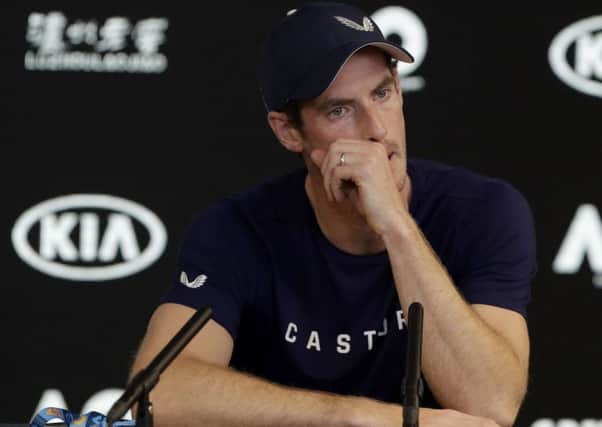Andy Murray: Tributes paid to Scotland's '˜all-round' champion


He was, and will remain, a singularly Scottish champion. History books will doubtless capture him in his pomp, roaring and pumping his fists, but his greatest successes were rendered all the sweeter by the memory of the wan, wiry, and squally lad from Dunblane.
Murray’s anger was almost always directed inwards. He knew he could improve, and by surrounding himself with a trusted team and sacrificing home life for gruelling cardio and weights regimes, he earned a hard-won metamorphosis.
Advertisement
Hide AdAdvertisement
Hide AdIt remodelled his body, rebooted his mindset, and allowed Murray to scale the summit of his sport’s most competitive era.
With three Grand Slam titles, two Olympic golds, and that memorable Davis Cup win, it is easy to forget the player who came before; the one whose identity and unfulfilled promise invited questions about Scottishness and Britishness. That Murray, the narrative went, was a duck out of water; the gifted yet surly product of a nation with no real history or cultural interest in tennis.
But his 2013 Wimbledon defeat of Novak Djokovic changed everything. It confirmed Murray not as our Great Peely Wally Hope, but a champion. A phenomenon. Pejorative characterisations were rarely given voice again, as those who uttered them realised they had misinterpreted a rare and unwavering dedication to success.
The transformation was so profound as to defy description, but John Beattie, the former Scotland flanker, came close yesterday, telling Murray: “You have done more for Scottish pride than many folk I can think of.”
That sentiment was echoed far and wide after the 31-year-old confirmed the light was fading on his playing career.
First Minister Nicola Sturgeon offered a selection of superlatives: a “legend, a “credit to sport and to the country,” and “one of Scotland’s greatest ever sportsmen.” The best? “An outstanding role model and inspiration for young people everywhere.”
Indeed, many accolades acknowledged Murray’s character. Billie Jean King, the 12 time Grand Slam winner, thanked him for speaking out about gender inequality.
Advertisement
Hide AdAdvertisement
Hide Ad“You are a champion on and off the court,” she tweeted him. “Your greatest impact on the world may be yet to come.”
It was an insightful tribute which recognised Murray’s legacy will not be measured by titles alone.
It will be quantified by the way he helped his hometown see itself anew, with the gold post box in Dunblane High Street a symbol of wresting triumph from tragedy.
It will be appraised, for years to come, by the inspiration he instilled in a new generation to pick up a racquet.
And it will be appreciated, with some humility, by how Murray confounded the accepted wisdom that Scotland’s sons and daughters must forever be gallant losers in elite competition.
‘Will we ever learn to love him?’ one newspaper asked of Murray ahead of his maiden Wimbledon final. One suspects it has long known the answer.